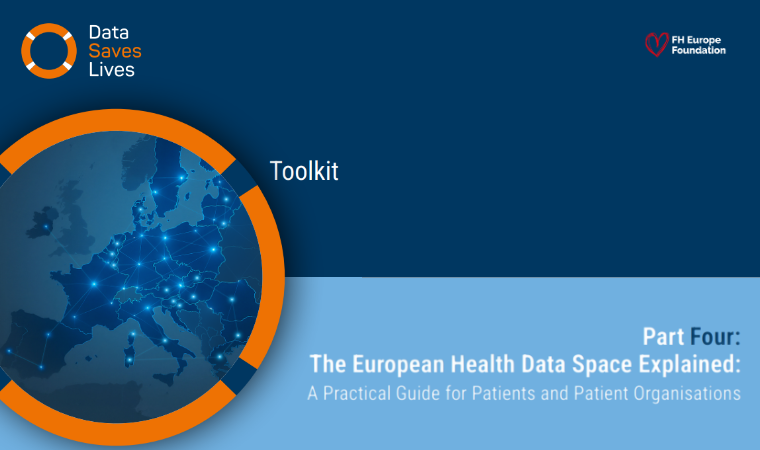
Part of the Data Saves Lives Initiative
The European Patients’ Forum (EPF) has launched a new toolkit to help people understand the European Health Data Space (EHDS). This is part of the Data Saves Lives initiative.
What is the European Health Data Space (EHDS)?
The EHDS is a major EU Regulation that aims to give every EU citizen access to their health data – wherever they are in the EU, and to ensure that the data can move with them, no matter where in the EU they go.
A recent webinar hosted by EPF explained the EHDS journey. Our ambassadors took part in the training, and here are their key takeaways.
What Will Change?
Example: If you fall ill on holiday in Spain, a doctor there can access your records (with your permission) to give you safe and effective care.
Two Ways Your Data Can Be Used
Examples:
This data can be shared with other healthcare providers with your permission. You stay in control by:
Examples:
Your data is anonymised or pseudonymised (your name is removed). You can say no to this kind of use.
Note: In emergencies like pandemics, exceptions may apply.
Your Rights & Privacy
Who Oversees the EHDS?
Each EU country will have two main bodies:
What Can Patient Organisations Do?
Toolkit Suggestions:
Key Dates
| Year | What’s Happening |
| 2025 | EHDS becomes law |
| 2027 | Basic data (e.g. prescriptions) shared across EU |
| 2029 | Includes lab results, scans, discharge letters |
| 2031 | More data types added |
| 2033 | First EU Commission review |
| 2035 | Fully working system across the EU |
Why Is EHDS Important?
For Patients:
For Doctors:
For Researchers & Policymakers:
Final Thoughts
The EHDS is a big step forward, but there are challenges:
The toolkit encourages patient organisations to stay engaged and help build a system that is safe, fair, and easy to understand.
Why It Matters for the FH Europe Foundation Community
For the FH Europe Foundation Community – which includes people living with familial hypercholesterolaemia (FH) and other inherited lipid conditions – the EHDS offers a vital opportunity. It can improve early diagnosis, enable better-coordinated care across borders, and support research into rare and underdiagnosed conditions. By contributing to and benefiting from high-quality, secure data sharing, the community can help shape a future where personalised, timely, and effective care is available to all, no matter where they live in the EU.
🔗 Want to learn more? Visit the Data Saves Lives website.
📺 Watch this clip – What is Data Saves Lives
Special thanks to our ambassador, Renate Kaal-Poppelars, for sharing her insights and contributing to this piece.